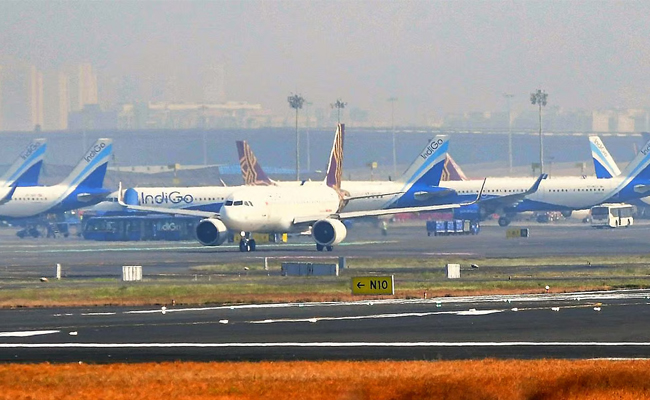New Delhi: Malayalam feature "Jallikattu", directed by Lijo Jose Pellissery, has been selected as India's official entry for the International Feature Film category at the 93rd Academy Awards, the Film Federation of India (FFI) announced on Thursday.
"Jallikattu", which was unanimously chosen from 27 entries across Hindi, Marathi and other languages, is about a tribe of men coming together to stop a bull that has run amok in their village.
"There were a total of 27 films that had entered the race from Hindi, Malayalam and Marathi. The film which has been nominated by the jury to represent India at Oscars is Malayalam film 'Jallikattu'.
"It is a film that really brings out the raw problems which are there in human beings, that is we are worse than animals," filmmaker Rahul Rawail, Chairman, Jury Board, Film Federation of India, told reporters in an online press conference.
The film, which derives its name from the popular-yet-controversial bull-taming event from the South, is based on a short story by Hareesh.
It features actors Antony Varghese, Chemban Vinod Jose, Sabumon Abdusamad and Santhy Balachandran.
Among the films that were considered by the jury included titles such as "Chhapaak", "Shakuntala Devi", "Chhalaang", "Gulabo Sitabo", "Eeb Allay Ooo!", "The Sky is Pink", "Bulbbul and internationally-celebrated feature "The Disciple".
Calling Pellissery a "very competent director", known for several critically acclaimed films like "Angamaly Diaries" and "Ea Ma Yau", Rawail said "Jallikattu" is a production that country should be proud of.
"The whole film talks about an animal that has run amok in a butcher's shop... The film has been depicted wonderfully and it has been shot very well. The emotion that comes out really moved all of us to have it selected," the chairman said.
"Jallikattu" had its premiere on September 2019 at the Toronto International Film Festival and received widespread critical acclaim.
The movie was particularly praised for Pellissery's spectacular directing effort, ably supported by Girish Gangadharan's cinematography and Renganaath Ravee's wild sound design work.
Pellissery also won the best director trophy at the 50th International Film Festival of India last year.
In 2019, Zoya Akhtar's "Gully Boy", starring Ranveer Singh and Alia Bhatt, was India's entry to the Oscars.
Let the Truth be known. If you read VB and like VB, please be a VB Supporter and Help us deliver the Truth to one and all.
Washington: Tensions rose at the US Capitol on Tuesday as lawmakers sought clearer answers from the Trump administration on the objectives, duration and costs of the ongoing military campaign against Iran, even as preparations advanced for votes aimed at curbing the president’s war powers.
Senior officials, including Secretary of State Marco Rubio, briefed members of the House and Senate for a second consecutive day behind closed doors, as reported by the Associated Press. The sessions came ahead of votes on war powers resolutions that would limit President Donald Trump’s authority to continue joint US-Israel operations without congressional approval.
Rubio told reporters that the president acted to prevent Iran from striking first. He rejected suggestions that Washington moved only because Israel was poised to launch its own offensive, saying instead that Trump believed the weekend presented a rare opportunity to act with maximum impact. “There is no way in the world that this terroristic regime was going to get nuclear weapons, not under Donald Trump’s watch,” Rubio said.
ALSO READ: BLR airport sees 34 int'l flight cancellations amid Middle East crisis
The conflict has widened following US and Israeli airstrikes on February 28 that killed Iran’s Supreme Leader, Ayatollah Ali Khamenei. Iran has since launched missile attacks targeting US military bases in the region. At least six American service personnel have died so far.
The administration has indicated that supplemental funding may be required to sustain operations. It added that the concerns among lawmakers about the financial burden and potential for a prolonged engagement has disrupted legislative business, sharpening political divisions at the start of a competitive midterm election cycle.
Associated Press cited Senate Democratic Leader Chuck Schumer’s concerns about what he described as possible “mission creep.” Senator Angus King questioned whether the United States had been drawn into war at Israel’s urging, while Senator Elizabeth Warren asked how the campaign aligned with Trump’s “America First” pledge to avoid extended foreign conflicts.
Defence official Elbridge Colby told senators the president had directed the military to degrade Iran’s missile capabilities and prevent it from acquiring nuclear weapons, stressing that the objective was not nation-building. Trump, speaking separately from the Oval Office, dismissed claims that Israel had forced his decision and suggested the conflict could continue if necessary. He has not ruled out deploying US ground troops.
Senator Richard Blumenthal was quoted by Associated Press as saying that he feared the possibility of American boots on the ground while Republican Senator Markwayne Mullin defended the operation, saying the president had acted decisively.
Uncertainty over Iran’s future leadership has added to concerns, with questions mounting about who might succeed Khamenei as Trump rejected the idea of backing Reza Pahlavi, the exiled crown prince of Iran’s former monarchy. Senate Majority Leader John Thune said the future of Iran should be determined by its people and House Speaker Mike Johnson said the United States would not engage in nation-building.
Lawmakers from both parties also reported a surge in calls from constituents seeking assistance for Americans attempting to leave the region as hostilities intensify.
The US Constitution grants Congress the right to declare war, however presidents have routinely begun military activities without formal declarations. Both houses are anticipated to vote on proposals that would require explicit congressional approval to continue operations. Some members have also argued that if constraints are not imposed, Congress should consider issuing an Authorization for the Use of Military Force to put lawmakers on the record.
Associated Press quoted House Democratic Leader Hakeem Jeffries questioning the rationale for the campaign and saying there would be strong support among Democrats for the resolution. Johnson, however, warned that restricting the president during active combat could pose risks.





